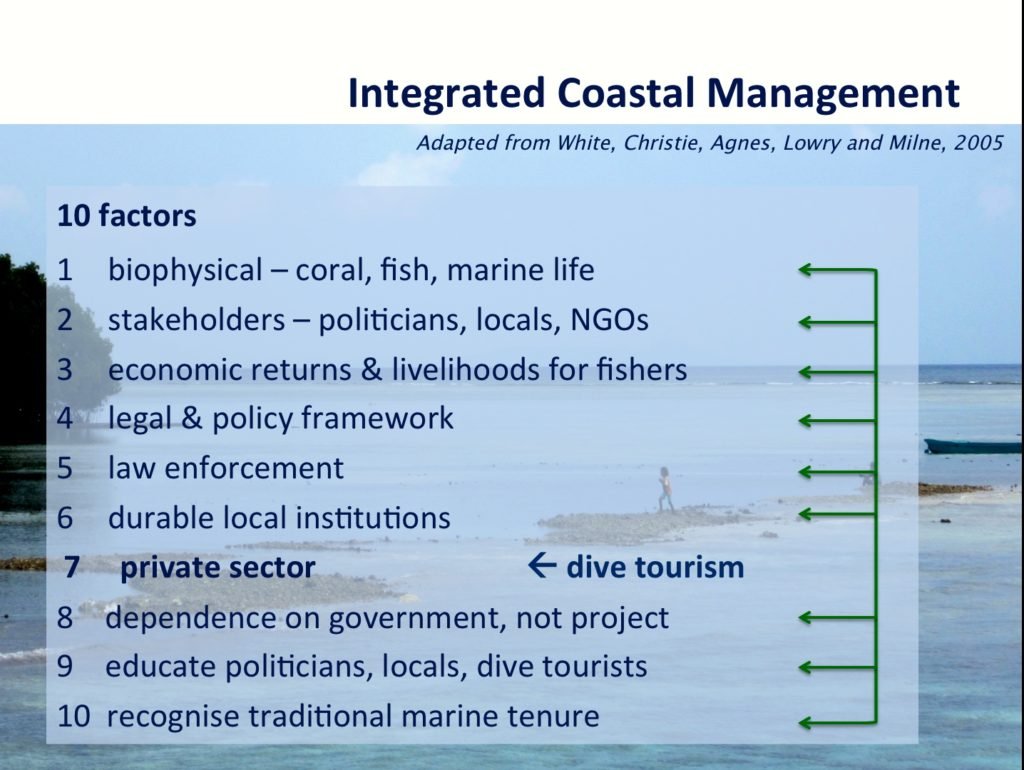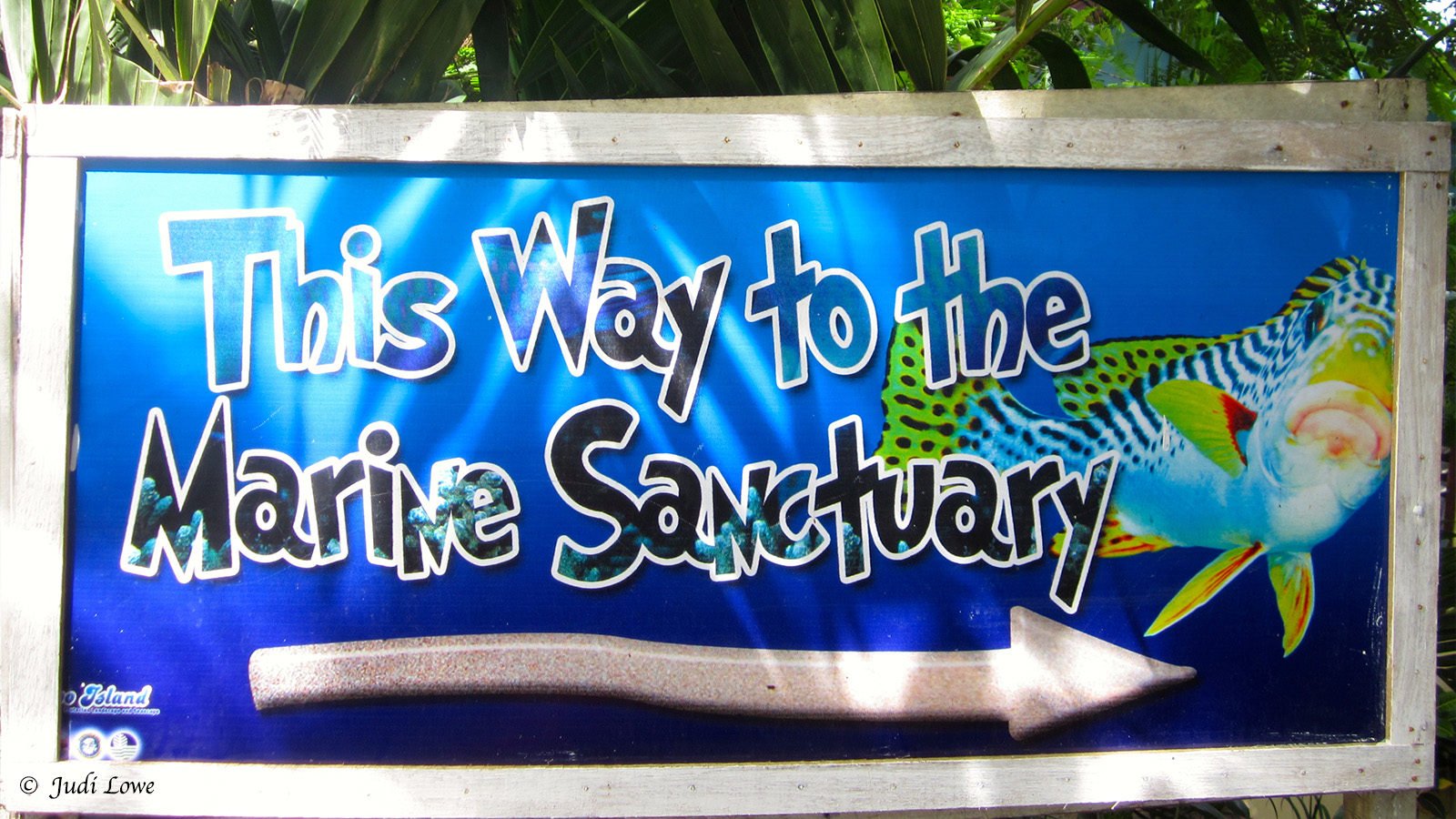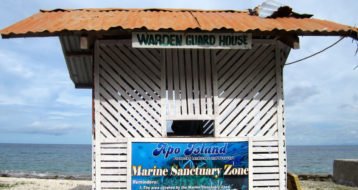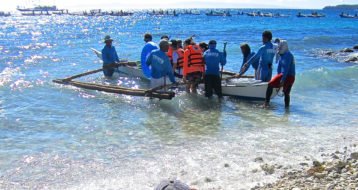integrated coastal management
The ten factors necessary for the integrated coastal management of coral reefs, and the role of dive tourism 
Adapted from White, Christie, Agnes, Lowry and Milne (2005)
© Judi Lowe, 2015
What is integrated coastal management?

The factors necessary for sustainable Integrated coastal management, developed by White, Christie, Agnes, Lowry and Milne in 2005, are widely accepted as forming the best management framework for conserving the coral reefs, fisheries, marine resources and inshore areas of the tropics. The framework for integrated coastal management was developed from lessons learned from 15 major donor funded coral reef conservation projects in the Philippines and Indonesia, which failed after conservation donor support was withdrawn and coral reefs were handed back to local governments to manage.
Integrated coastal management is a practical framework, the factors of which are essential to success in sustainably conserving coral reefs in less developed countries which have fringing coral reefs, low capacity, or will of governments, high levels of poverty and direct reliance of local fishers and communities on coral reefs resources.
Integrated coastal management balances conservation and the needs of local fishers and communities and understands the importance of sharing the social, environmental and economic benefits of healthy coral reefs amongst all parties.
The role and importance of each of the ten factors for integrated coastal management and their connection to dive tourism will be explained more fully as scientific journal articles are published.
Edeos Creative Commons License CC-BY-SA

















